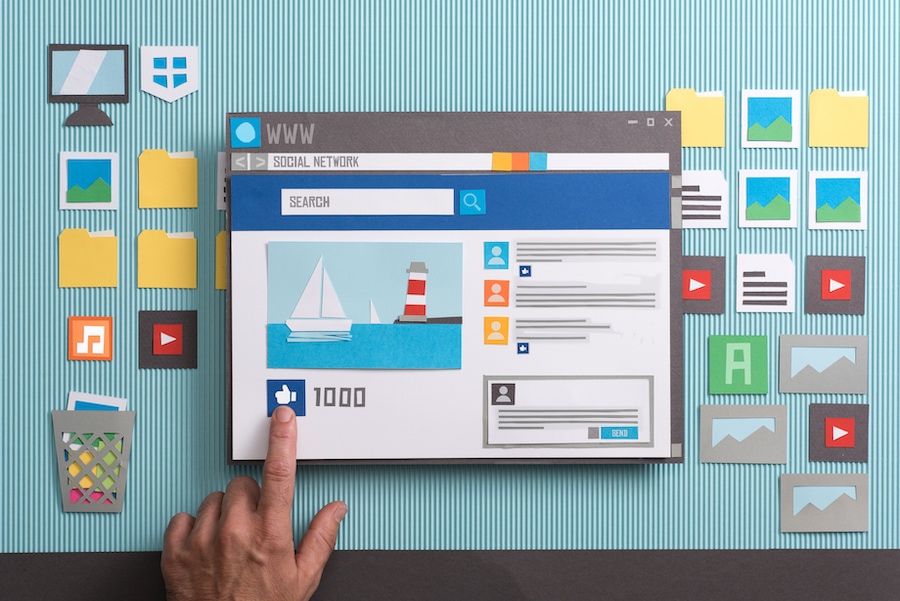
5 Ways to Stay Safe on Social Media
Facebook, Twitter, Instagram, and other social media outlets are some of the ways that we’ve been able to stay connected with loved one during the last two years. Unfortunately, they’re also hotspots for cyber-scammers and identity thieves. If you’re not careful, you could easily fall into the trap of oversharing or not adequately protecting your personal information and data.
Here are 5 tips from our team at AMS to stay safe on social media:
1. Don’t say too much.
Some apps more than other prompt you to give information about your hometown, college, graduation year, and personal connections. And while this information can be used by the algorithm to connect you to people you may know, it can also be low-hanging fruit for identity thieves. The same kids of information that are typically shared on your profile— occupation, maiden name, birthday, etc.— can be the same information you use for security questions on bank accounts and on other secure sites.
2. Avoid quizzes.
While it’s fun to learn what kind of vegetable you might be or how many lives you must have lived, often times these quizzes are through unsupported websites that request account access. When you grant access, you essentially are giving away your information, and becoming an even bigger target for thieves and scammers.
3. Have a good password.
Passwords should never be used for more than one account, and should be complex and unique enough to not be guessed. A good rule of thumb is to not include any personal information that’s easily guessed (children’s names, animal, etc.) and instead make your passwords long and difficult to crack. GkjsaqM!!10g34F is a great one.
4. Utilize privacy settings.
Privacy settings are a great way to keep your information safe on the world-wide web. If you want to include your information online but don’t want it accessible to the masses, adjust your privacy settings to “just friends” (or even better, “just me”.
5. Be wary of duplicate friend requests.
In some scenarios, like for business, friends may create alternate social media accounts. But typically, a second friend request from someone already in your contacts may be a sign of a hacker trying to gain access to your information. If you are wary of a friend request, report it.
These are just a few simple but easy tips to implement to help you stay safe on social media.






